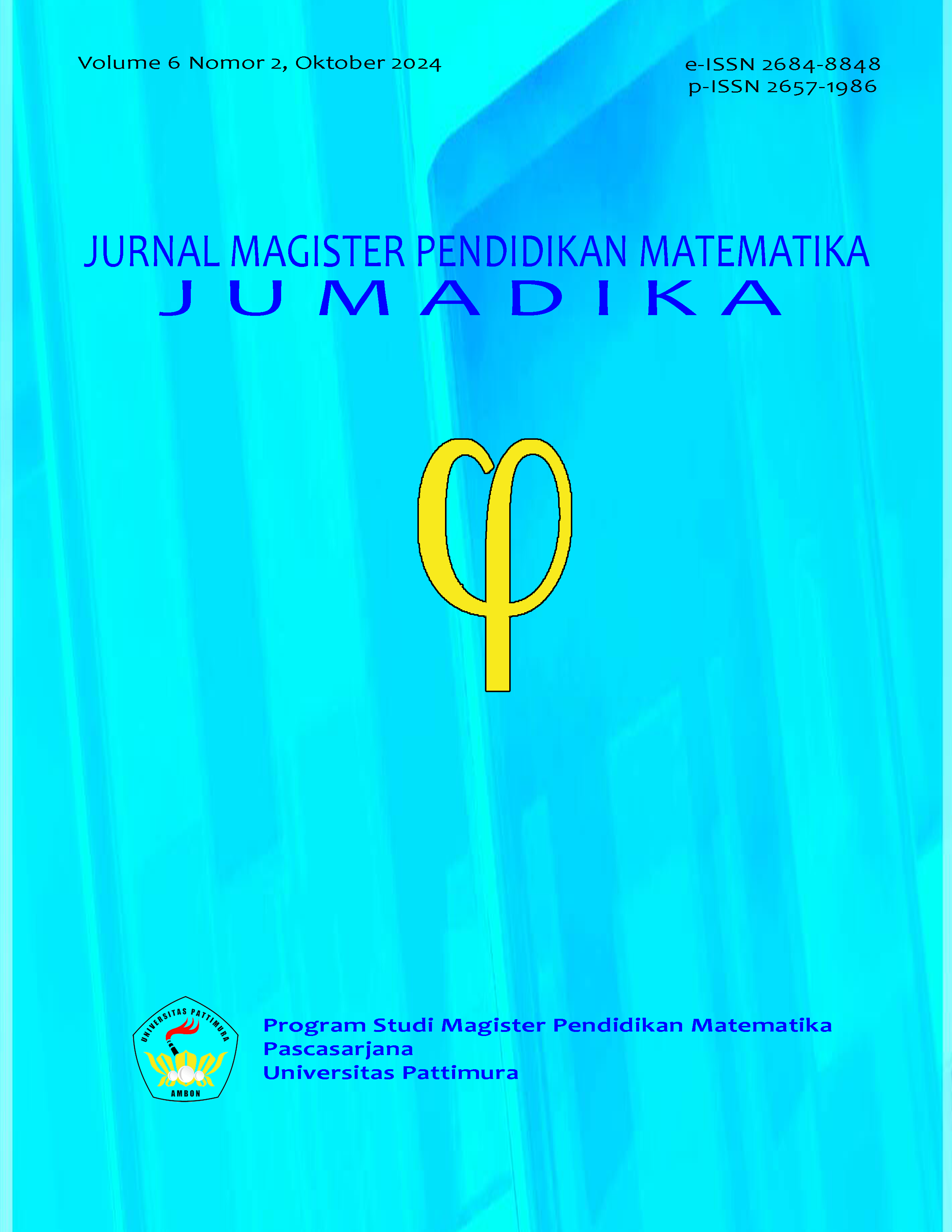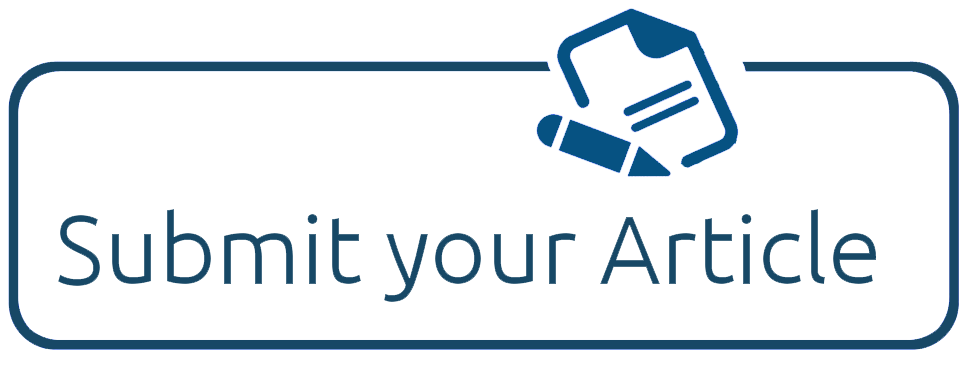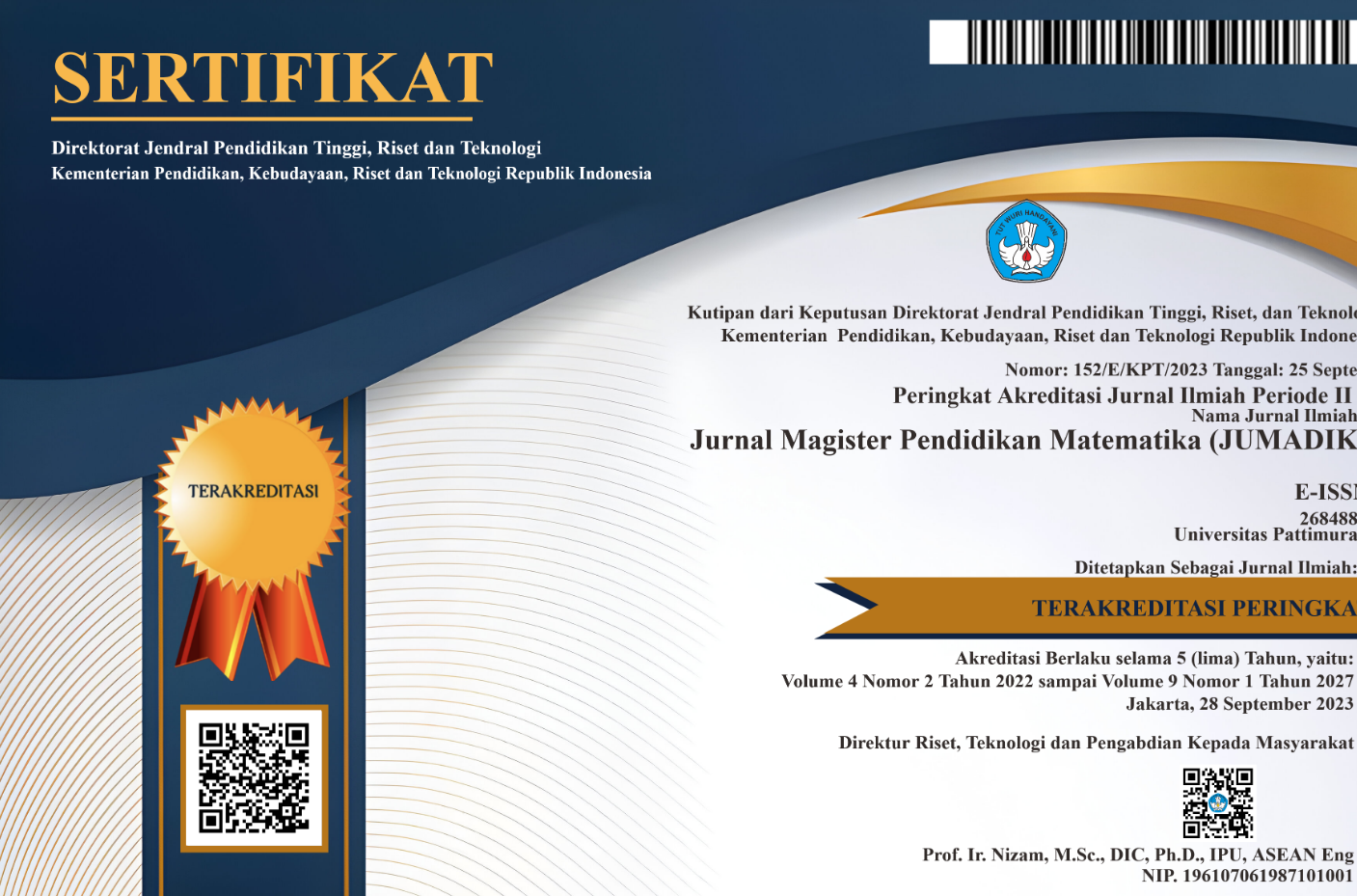DEVELOPING MATHMATICS PROBLEMS OF LITERACY NUMERACY BASED OF LOCAL WISDOM CONTEXT OF MALUKU
Abstract
One of the skills required in learning mathematics is numerical literacy. In learning mathematics, numeration literacy requires students to be able to solve contextual problems in everyday life. Students' literacy and numeration skills are generally low. One of the reasons is the lack of literacy training in numeration, which is usually routine issues that do not sharpen students' literacy and numeration skills. The lack of use of cultural contexts in learning and in matters also makes students more likely not to want to improve their literacy and numeration skills. This research is a developmental research aimed at developing the issue of numeration literacy based on the local wisdom of Maluku by expressing how the process of development and how the numerational literacy ability of students in solving the issue is numeration based on local Wisdom developed. The development model used is the development model by Tessmer.Tessmer's development consists of several stages: preliminary, self-evaluation, prototyping (self evaluation, one-toone, and small group) and field testing. The instrument in this research is to raise the practicality of matters and matters of numeration literacy based on local wisdom developed. The result or product of this study is eight elements of local wisdom-based numeration literacy, consisting of three True-False complex double-choice questions, one deceptive question and four descriptive questions
Downloads
References
De Lange, J. (2006). Mathematical literacy for living from OECD-PISA perspective. Tsukuba Journal of Educational Study in Mathematics, (25), 13-35.
Fauzi, I., & Arisetyawan, A. (2020). Analisis Kesulitan Belajar Siswa pada Materi Geometri di Sekolah Dasar. (U. N. Semarang, Hrsg.) Jurnal Matematika Kreatif-Inovatif, 1(11), 27-35.doi:http://dx.doi.org/10.15294/kreano.v11i1.20726
Kementerian Pendidikan dan Kebudayaan. “Gerakan Literasi Nasional”. (Online)
Khoirunnisa, S. (2023). Analisis Kemampuan Literasi Numerasi Siswa SMP pada Era Merdeka Belajar. JPMI (Jurnal Pembelajaran Matematika Inovatif), 6(3), 925-936.
Ekowati, D. W., Astuti, Y. P., Utami, I. W. P., Mukhlishina, I., & Suwandayani, B. I. (2019). Literasi Numerasi Di Sd Muhammadiyah. Else (Elementary School Education Journal) : Jurnal Pendidikan Dan Pembelajaran Sekolah Dasar, 3(1), 93
Erman, S. 2003. Evaluasi Pembelajaran Matematika. Bandung: JICA UPI.
Hikmaturrahman, Skripsi : Analisis Kemampuan Literasi Matematika Siswa Kelas X SMAN 2 Takalar Dalam Menyelesaikan Soal PISA (Programme For International Student Penilaian), (Makassar : Universitas Muhammadiyah Makassar , 2018), hal 11
Ibrahim, G.A. dkk. (2017). Peta Jalan Gerakan Literasi Nasional. Jakarta: Kemendikbud. Iqrima, Zulkarnain, I., & Kamaliyah. (2023). Soal Matematika dalam Materi Statistika Berbasis Etnomatematika untuk Mengukur Literasi Matematis Siswa. Plusminus: Jurnal Pendidikan Matematika, 3(1), 40-45
Kemendikbud, “Gerakan Literasi Sekolah”, diakses dari http://gln.kemendikbud.go.id pada tanggal 29 November 2022 Kementrian Pendidikan dan Kebudayaan, “Materi Pendukung Literasi Numerasi”, (Jakarta : Kementrian Pendidikan dan Kebudayaan, 2017), hal 4
Kuniati, Iin, Skripsi : Analisis Kemampuan Literasi Matematis Siswa Melalui Penyelesaian Soal-Soal Ekspresi Aljabar di SMP Negeri 1 Lambu Kibang” , (Bandar Lampung : UIN Raden Lintang Lampung, 2018), hal 18
Nahusona, F. (2019). Religiositas Ambon-Kristen: Penelusuran Fenomenologis Melalui Ritual Adat Cuci Negeri di Soya–Kota Ambon (Doctoral dissertation, Doktor Sosiologi Agama Program Pascasarjana FTEO-UKSW).
Rezky, M., Hidayanto, E., & Parta, I. N. (2022). Kemampuan Literasi Numerasi Siswa Dalam Menyelesaikan Soal Konteks Sosial Budaya Pada Topik Geometri Jenjang SMP. AKSIOMA: Jurnal Program Studi Pendidikan Matematika, 11(2), 1548-1562
Copyright (c) 2024 Destalia Paunno, Christina M Laamena, La Moma

This work is licensed under a Creative Commons Attribution-NonCommercial-ShareAlike 4.0 International License.
License and Copyright Agreement
In submitting the manuscript to the journal, the authors certify that:
- They are authorized by their co-authors to enter into these arrangements.
- The work described has not been formally published before, except in the form of an abstract or as part of a published lecture, review, thesis, or overlay journal. Please also carefully read Jurnal Magister Pendidikan Matematika (JUMADIKA) Posting Your Article Policy.
- That it is not under consideration for publication elsewhere,
- That its publication has been approved by all the author(s) and by the responsible authorities – tacitly or explicitly – of the institutes where the work has been carried out.
- They secure the right to reproduce any material that has already been published or copyrighted elsewhere.
- They agree to the following license and copyright agreement.
Copyright
Authors who publish with Jurnal Magister Pendidikan Matematika (JUMADIKA) agree to the following terms:
- Authors retain copyright and grant the journal right of first publication with the work simultaneously licensed under a Creative Commons Attribution-NonCommercial-ShareAlike 4.0 International License (http://creativecommons.org/licenses/by-nc-sa/4.0/) that allows others to share the work with an acknowledgment of the work's authorship and initial publication in this journal.
- Authors are able to enter into separate, additional contractual arrangements for the non-exclusive distribution of the journal's published version of the work (e.g., post it to an institutional repository or publish it in a book), with an acknowledgment of its initial publication in this journal.
- Authors are permitted and encouraged to post their work online (e.g., in institutional repositories or on their website) prior to and during the submission process, as it can lead to productive exchanges, as well as earlier and greater citation of published work.








